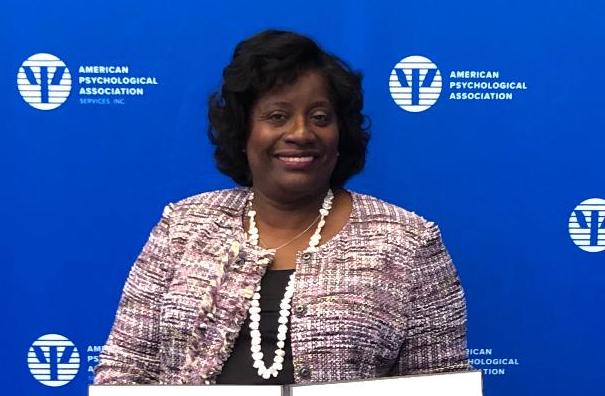Last week I had the opportunity to attend the 2019 Practice Leadership Conference, held in Washington DC. The title of the conference was “Advocacy and Leadership”. This theme was woven throughout the meeting. There were many aspects of this conference that were quite unique compared to the other leadership conferences I had attended. A highlight was our introduction to the new Chief of Professional Practice, Jared Skillings, PhD, ABPP. In addition, the newly hired Chief Advocacy Officer, Ms. Katherine McGuire, was introduced to the attendees. This was the last conference for the Committee for the Advancement of Professional Practice (CAPP), which is scheduled to sunset in June 2019. Members of CAPP were recognized for their contributions to practice and the profession. Numerous members of the newly formed Advocacy Coordinating Committee, in which I serve as one of the co-chairs, were in attendance. Special groups in attendance were the Diversity Delegates and Early Career Psychologists.
I had the opportunity to participate in a panel discussion during a plenary session: “Becoming Leaders for Integrated Advocacy – Making Use of Transferable Skills”. I found it to be a rewarding and enriching experience. It was noted that members of the audience were recognized leaders in their respective SPTA’s; the goal is to utilize these sills in our integrative advocacy, not only with APA but also within their SPTA. The panel discussed some of the challenges we have faced as leaders, as well as the need to look for opportunities that we have with our new integrated advocacy. I was a presenter in one of the breakout sessions, “Opioid Crisis and Non-pharmacological Pain Management Collaboration with SPTAs and Divisions”. I specifically discussed my practice, which focuses on pain management. I discussed health disparities as it relates to pain management and provided data about the number of patients that I treat who are on opioid therapy and the interventions that I have been using to address their use of opioids.
There were other programs that were of interest, including programs on Immigration, Integrated Care, Treatment Guidelines, HIPAA, and Telepsychology.
Given that it was an advocacy conference, one of the main areas of focus of this conference was on advocacy, and it culminated with visits on Capitol Hill. I represent the state of Georgia as the Federal Advocacy Coordinator and have done so for 20 years. We were able to visit the following offices: Senator Johnny Isakson, and Representatives Buddy Carter, Drew Ferguson, John Lewis, and Lucy McBath. The following issues were discussed: Medicare Mental Health Access Act, removing the roadblock that hampers and delays mental health treatment for Medicare beneficiaries by ending unnecessary physician sign-off and oversight of psychologists’ services; Mental Health Telemedicine Expansion Act, making it easier for the elderly and disabled to obtain mental health care in their own home by removing current-law restrictions on the use of telehealth services; and requesting that our lawmakers encourage Betsy DeVos, Secretary of Education, to address the crisis at Argosy University, to protect the doctoral students in psychology, and all Argosy University students, to help them get back on a path of learning and degree completion.
There were two special highlights for me with this conference: I received a Presidential Citation from President Rosie Phillips Davis and was recognized for my 20 years of service as the Georgia Psychological Association Federal Advocacy Coordinator.
This was recognized as a transition year for the new APA, and it was good to have in attendance colleagues from applied practice, science, education, and the public interest communities, in addition to the practice community. This is the beginning of APA being a unified profession, “One APA”. Throughout the conference it was clear that we are an interdependent organization and profession. The public does not identify us as being either practice, applied practice, science, education, or public interest psychologists; they just see us as being a psychologist. It is now time for us to see ourselves as the same and discontinue the silos. We are stronger as one organization than our individual parts.
Overall, I would say that it was a strong week, and I look forward to us having other conferences that will integrate the voices of all psychologists. Education, Science, Practice and Public Interest: United to benefit society and improve people’s lives.


If I was a voting member of APA… I would definitely cast my vote for YOU!